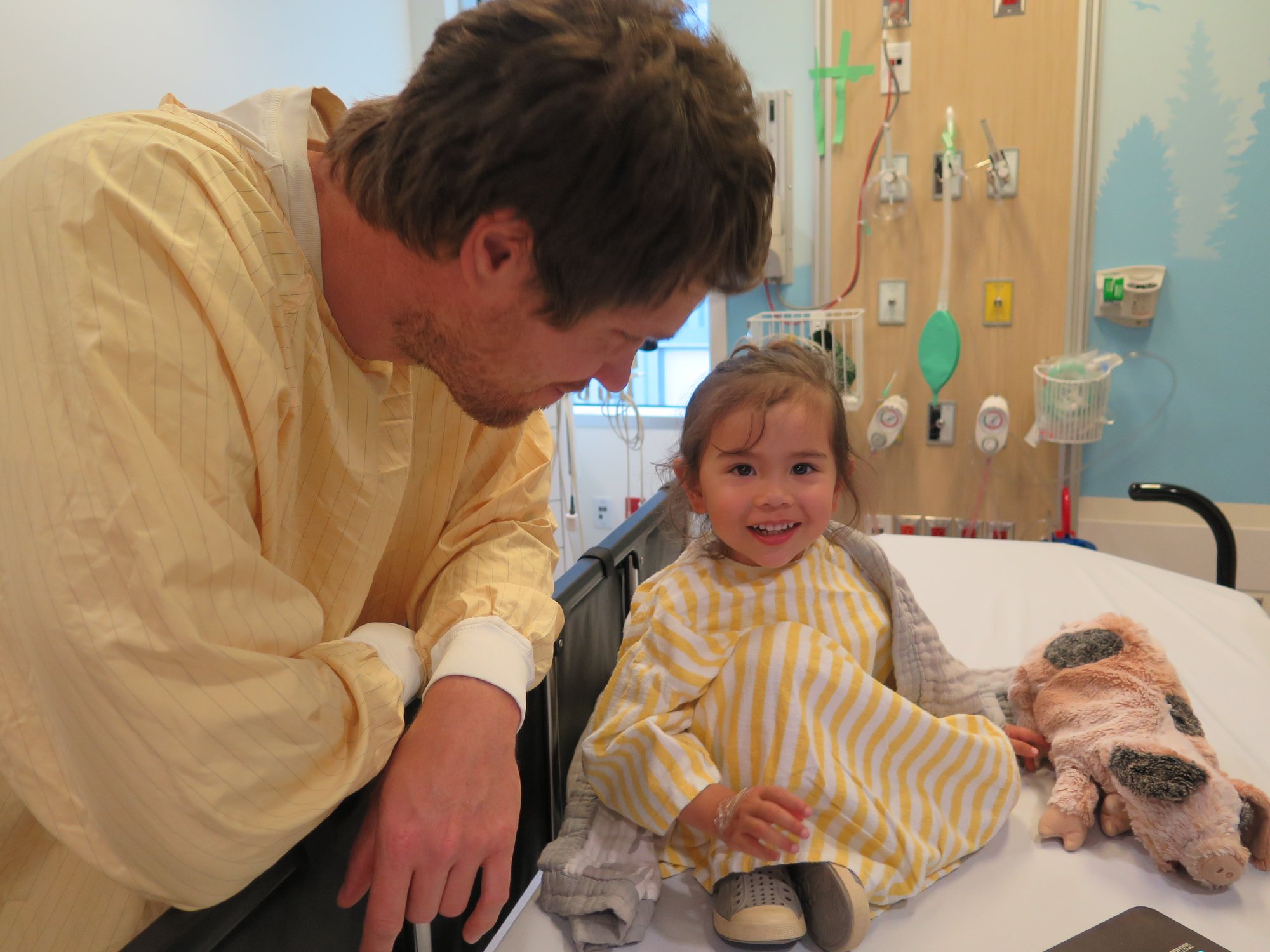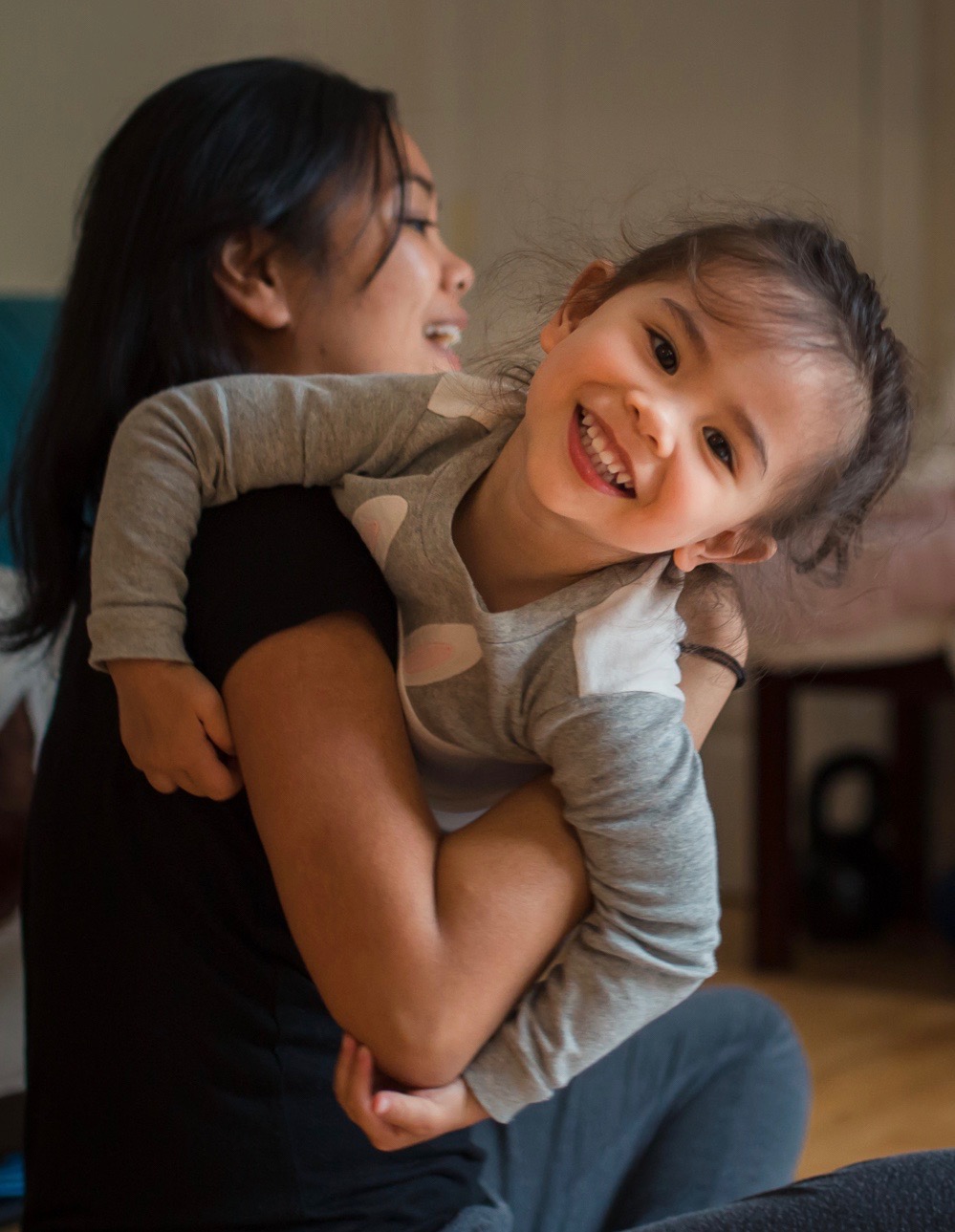They say that there are a few times in your life when everything changes. Days that are so special that you’ll remember them forever: your wedding day, the birth of your children, or the day you buy your forever home, for example. January 16, 2018 was one of those days for me.
 On January 16, 2018, my 2-year-old daughter Zoe was diagnosed with Spinal Muscular Atrophy (SMA), a rare progressive neuromuscular disease which, if left untreated, takes away the ability to walk, move the arms, hands, head and neck, and eventually the ability to swallow or breathe independently. On that day, I became an honorary nurse, teacher, researcher, nutritionist, advocate, crisis manager. And for the next 6 months, my husband and I grieved the family and the future that we had dreamed about having and attempted to rebuild our lives around our new reality.
On January 16, 2018, my 2-year-old daughter Zoe was diagnosed with Spinal Muscular Atrophy (SMA), a rare progressive neuromuscular disease which, if left untreated, takes away the ability to walk, move the arms, hands, head and neck, and eventually the ability to swallow or breathe independently. On that day, I became an honorary nurse, teacher, researcher, nutritionist, advocate, crisis manager. And for the next 6 months, my husband and I grieved the family and the future that we had dreamed about having and attempted to rebuild our lives around our new reality.
Since then, we’ve spent countless hours in and out of hospitals, shuttling back and forth between roughly a million appointments with specialists, building an online community of support and resources around this horrible degenerative disease, and trying to work with the government to show them that SMA lives are worth saving.
SMA and Its Impact On Our Family
Spinal Muscular Atrophy, while classified as a rare disease, can affect any ethnicity or gender and is the most common genetic cause of infant death. In the US, approximately 1 in 50 people are carriers and it affects approximately 1 in 11,000 babies. If the statistics hold up, that means that there are roughly 66,500 people that are carriers for SMA, and there were 4–5 babies born with some type of SMA in San Diego last year. And the only way to know for sure is if you or your child is tested.

I never set out to be a “rare disease mom”; I don’t think many people do. On top of the natural anxiety that comes with being in charge of the wellbeing of a tiny human, I feel an added layer of uncertainty about whether this new crazy behavior is normal insane toddler-ness or if it’s a function of this silent disease that is slowly deteriorating her muscle strength.
What allowances do I make for the fact that she has different abilities? Do I make any? Am I arming her with the skills she’ll need to navigate this unexpected life? Almost around the clock, I turn up the volume on the chant in my head that I am doing my best, I am doing my best, I am doing my best.
Here’s the deal. SMA sucks. Watching your child struggle to do things that would be easy for a typical healthy child is heartbreaking. All the extra appointments, the extra precautions, the hyper vigilance while tracking your child’s progress of such mundane things as being able to pick toys up from the floor, the comments from unknowing people about the “funny” way she walks. It all sucks. This is SMA.
But there’s another side to SMA. There is the hope for the future, the full celebration and pride of small accomplishments, the heart, determination and fighting spirit that SMA has strengthened in our family, the humanity that keeps bringing us and our community all together. This is SMA too. For someone like me who is often very focused on getting things done and moving on, it has forced me to slow down and truly celebrate those singular moments of joy, and for that, I am grateful.

August is SMA Awareness Month, so I’ve been chatting with more people than usual about it. Someone asked me in an interview: “What is the most important thing you’d like people to know about SMA?” It’s this:
Breaking Barriers and Creating Hope for SMA
As awful as SMA is, we live in a time of hope. Less than 10 years ago, parents of children diagnosed with SMA were told to go home and love their kids as much as they could for as long as they had them. It was a death sentence. But today, we have hope. There are 2 treatments available to help stop the loss progression.
The catch is that they are not available to everyone who needs it. In Canada, where Zoe and I live, only some provinces have access to treatment. Whether you live or die shouldn’t depend on your address. We are working to get access in the hands of everyone who needs it. Our children’s lives are precious and they need us to fight for them.
Here’s how you can help:
- Advocate for newborn screening. SMA is progressive, so the earlier you’re able to diagnose it the better off your babe will be.
- If you’re tired of your kiddo’s stuff getting lost in the school jumble, support our Mabel’s Labels campaign. Their labels are durable, washable, and super cute.
- Go to campaigns.mabelslabels.com
- Type “Small but Mighty Zoe” in the search bar
- A green check mark will pop up saying “You are now supporting: Small but Mighty Zoe (Victoria)”. It disappears but you’ll still be supporting us after it’s gone.
- 20% of anything purchased on their site will be used to help support Zoe’s ongoing medical costs and continuing the advocacy work for broad Spinraza access.
If you would like to donate, visit or share https://www.gofundme.com/small-but-mighty-zoe.

About Vivienne Damatan
Vivienne is a native San Diegan living in the beautiful (but cold) North: British Columbia, Canada. She is an executive leadership coach, occasional blogger, and speaker on resilience. In her spare time, she spreads awareness about SMA and is a fierce advocate for universal treatment access for all SMA patients who need it. To learn more about her family’s journey, follow @smallbutmightyzoe on Instagram or facebook.com/smallbutmightyzoe.


















